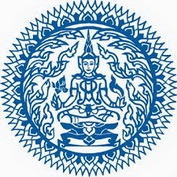Prime Minister led the Cabinet to Visit Samut Sakhon Province for a Follow-up Session to Address Illegal Fishing and Labour in the Fisheries Sector
Prime Minister led the Cabinet to Visit Samut Sakhon Province for a Follow-up Session to Address Illegal Fishing and Labour in the Fisheries Sector
วันที่นำเข้าข้อมูล 5 มิ.ย. 2561
วันที่ปรับปรุงข้อมูล 29 พ.ย. 2565
| 1,479 view

On 5 March 2018, H.E. General Prayut Chan-o-cha, Prime Minister of the Kingdom of Thailand, led the Cabinet on an official visit to Samut Sakhon Province to follow up on progress in tackling illegal fishing and labour issues in the fisheries sector, prior to the 10th session of the mobile cabinet meeting at Petchaburi Province.
After the visit, the Prime Minister announced at a press briefing that the government places great importance on the fisheries sector since it is a crucial source of income for fishermen and a source of revenue for the country, valued at more than 200,000 million Baht annually. The government has found it necessary to regulate the fisheries sector with regards to fleet management, labour in the fisheries sector, and sustainability of marine resources, to be in line with laws and international standards, and to reduce the potential impact on Thai exportation to other countries. In the meantime, the impact on the people’s living conditions must be kept at a minimum.
As far as the labour issue is concerned, the Prime Minister requested all employers to register their migrant workers by 31 March 2018. He also asked employers to treat all migrant workers well according to the law and to protect them from being exploited. Moreover, the Prime Minister mentioned that Thailand has been using iris scanning technology to capture data in order to track the identities of migrant workers and to help protect their rights. He said that all efforts to solve problems related to labour issues and IUU fishing requires collaborative work from every sector, including private, public sectors, and civil societies. He stressed that Thailand is aiming to lead the region as well as ASEAN to develop international best practices and labour standards particularly in the fisheries sector. He announced that Thailand attaches great importance to business and human rights in all sectors as well as sustainable environmental conservation and preservation.
During his trip, the Prime Minister visited the Labour Rights Promotion Network Foundation, whose work includes rendering assistance to migrant workers in the fisheries sector. The Prime Minister had a brief exchange of information regarding measures to combat human trafficking and migrant workers-related problems as well as on how to foster closer cooperation between the NGOs and relevant government agencies. Later on, the Prime Minister visited Thai Union Group PCL which is the world’s largest exporter of processed seafood. During his visit, the Prime Minister stressed the importance of safety and fair treatment for workers. He was also informed of the development of traceability system for food chains so that the origin of the raw materials can be verified, which in turn will facilitate promoting the sustainability of marine resources.
Afterwards, the Prime Minister visited the Fish Marketing Organisation in Samut Sakorn Province. During his tour, he met with relevant government officials, fishermen, and both Thai and migrant workers. The Prime Minister inquired after their well-being and listened thoroughly to their concerns. He was also briefed on the latest developments in the fight to combat IUU fishing, including the work of PIPO Centres (Port-in Port-out), FMC (Fisheries Monitoring Center), and the Thai Catch Certificate system. Additionally, the Prime Minister was informed of the iris scan system and the work of the one stop service center set up to facilitate the registration of migrant workers.
เมื่อวันที่ ๕ มีนาคม ๒๕๖๑ พลเอกประยุทธ์ จันทร์โอชา นายกรัฐมนตรี ได้นำคณะรัฐมนตรี เดินทางไปตรวจราชการที่จังหวัดสมุทรสาคร เพื่อติดตามความคืบหน้าการแก้ไขปัญหาการทำประมงผิดกฎหมายและปัญหาแรงงานในภาคประมง ในระหว่างเดินทางไปประชุมคณะรัฐมนตรีอย่างเป็นทางการนอกสถานที่ ครั้งที่ ๑๐/๒๕๖๑ ณ จังหวัดเพชรบุรี
นายกรัฐมนตรีได้แถลงต่อสื่อมวลชนภายหลังการตรวจราชการว่า รัฐบาลให้ความสำคัญกับภาคประมงไทยเป็นอย่างมาก เพราะเป็นแหล่งรายได้สำคัญของชาวประมงและนำรายได้เข้าประเทศไทยมากกว่า ๒ แสนล้านบาทต่อปี ทั้งนี้ รัฐบาลมีความจำเป็นต้องจัดระเบียบการประมงของไทย ทั้งในด้านกองเรือ แรงงานในภาคประมง และความยั่งยืนของทรัพยากรทางทะเล เพื่อให้เป็นไปตามกฎหมายและมาตรฐานสากล และเพื่อไม่ให้กระทบการส่งออกของไทยในต่างประเทศ ในขณะเดียวกันก็ต้องระวังให้เกิดผลกระทบต่อความเป็นอยู่ของประชาชนน้อยที่สุด
ในด้านแรงงาน นายกรัฐมนตรีได้เน้นย้ำให้ผู้ประกอบการเร่งดำเนินการจดทะเบียนแรงงานต่างด้าวให้ทันภายในวันที่ ๓๑ มีนาคม ๒๕๖๑ และขอให้ดูแลแรงงานต่างด้าวให้ถูกต้องตามกฎหมาย นอกจากนี้ รัฐบาลยังได้นำเทคโนโลยีการสแกนม่านตาเพื่อพิสูจน์อัตลักษณ์มาใช้ในการตรวจสอบและคุ้มครองแรงงานต่างด้าวด้วย ทั้งนี้ ความพยายามที่จะแก้ไขปัญหาทั้งหมดรัฐบาลต้องอาศัยความร่วมมือจากทุกภาคส่วน ทั้งภาคเอกชน ภาคประชาชนและภาคประชาสังคม โดยไทยมุ่งหวังที่จะเป็นผู้นำในด้านการประมงและแรงงานในภาคประมงตามมาตรฐานสากลในภูมิภาคอาเซียน และไทยให้ความสำคัญเป็นอย่างยิ่งกับเรื่องสิทธิมนุษยชนกับการดำเนินธุรกิจในทุกสาขา รวมถึงการรักษาสิ่งแวดล้อมแบบยั่งยืนด้วย
ในการตรวจราชการครั้งนี้ นายกรัฐมนตรียังได้เดินทางไปเยี่ยมชมมูลนิธิเครือข่ายส่งเสริมคุณภาพชีวิตแรงงาน ซึ่งให้ความช่วยเหลือแรงงานต่างด้าวที่ทำงานในภาคประมง และได้แลกเปลี่ยนข้อคิดเห็นเกี่ยวกับการแก้ไขปัญหาการค้ามนุษย์และแรงงานต่างด้าว ตลอดจนการเพิ่มประสิทธิภาพการทำงานร่วมกับภาครัฐ พร้อมทั้งได้เยี่ยมชมบริษัท ไทยยูเนี่ยน กรุ๊ป จำกัด (มหาชน) ซึ่งเป็นบริษัทผู้ผลิตสินค้าอาหารทะเลแปรรูปส่งออกรายใหญ่ที่สุดของโลก โดยได้เน้นการดำเนินนโยบายแรงงานปลอดภัยและการปฏิบัติต่อแรงงานที่ถูกต้องตามกฎหมายและเป็นธรรม รวมทั้งการพัฒนาระบบการตรวจสอบย้อนกลับเพื่อให้ทราบถึงแหล่งที่มาของวัตถุดิบ ซึ่งจะช่วยส่งเสริมความยั่งยืนของทรัพยากรทางทะเล
นอกจากนี้ นายกรัฐมนตรียังได้เดินทางไปพบปะเจ้าหน้าผู้ปฏิบัติงาน ชาวประมง และแรงงานประมงทั้งไทยและต่างด้าวที่องค์การสะพานปลาสมุทรสาคร โดยได้ซักถามสวัสดิภาพความเป็นอยู่ของแรงงาน รับฟังปัญหาและความเดือนร้อนของชาวประมง ตลอดจนและได้รับฟังบรรยายสรุปความคืบหน้าการแก้ไขปัญหาการทำประมงผิดกฎหมาย ได้แก่ การบันทึกข้อมูลของศูนย์ควบคุมการแจ้งเข้า – ออกเรือประมง (PIPO) ศูนย์ติดตามและควบคุมเรือประมง (FMC) และระบบรับรองการจับสัตว์น้ำ รวมทั้งการจัดเก็บข้อมูลแรงงานด้วยการสแกนม่านตาและการจดทะเบียนแรงงานต่างด้าวของศูนย์บริการจดทะเบียนแรงงานต่างด้าวแบบเบ็ดเสร็จด้วย
TOP
กรมยุโรป กระทรวงการต่างประเทศ
Department of European Affairs
Department of European Affairs
ที่อยู่ : กระทรวงการต่างประเทศ 443 ถนนศรีอยุธยา กรุงเทพมหานคร 10400
จันทร์ - ศุกร์ เวลา 08.30 - 16.30 น. (ยกเว้นวันหยุดและวันหยุดนักขัตฤกษ์)
0-2203-5000 ต่อ 13174
0-2643-5140
Copyright © 2018 MFA All rights reserved.